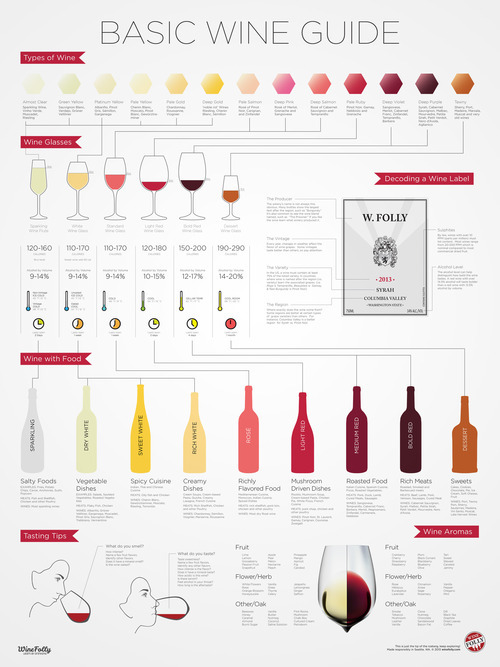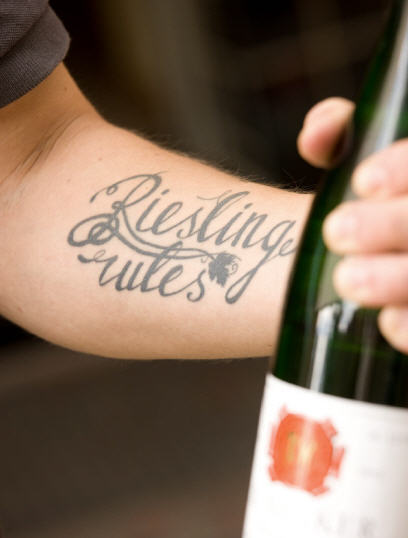Go, eat your food with gladness, and drink your wine with a joyful heart,
…for God has already approved what you do.
(Ecc 9:7)
I was always bothered by the fact, that I had no traditional knowledge passed over by the region I come from in Germany that had something to do with lucullan knowledge and the traditional foods and drinks from there. If you’re from Bavaria, you know how to brew beer, if you’re from Mosel, Baden or Pfalz, you know, how to grow and make wine. My region Ostfriesland is only famous for its tea tradition. But it involves rather tea drinking, than tea production and therefore it doesn’t count.
Das große Los
About a year ago, I read a book by Meike Winnemuth called “Das große Los” (“The great fortune”). In this book, the German journalist wrote about her trip around the world to see 12 cities in 12 months, she founded with a 500.000 Euro prize, she won at “Who wants to be a millionaire” in German television. She wrote about her trip to Sydney, Buenos Aires, Mumbai, Shanghai, Honolulu, San Francisco, London, Copenhagen, Barcelona, Tel Aviv, Addis Abeba, Havana and Hamburg on her blog and also interacted with the readers. Some send her tips, like a favorite bakery, others asked her to meet with someone they know in a city, she was about to travel to. Sometimes she ended up in on a dinner table with 10 strangers and after the meal, some wine and nice conversations, she found new friends. By traveling the world and by visiting unexpected and spontaneous sights and people, Meike Winnemuth experienced exiting things. In different parts of the blog and the book she reflected, that it is a bummer, how seldom we go in for adventures and discover new ground. Our daily routine and grind hold us in a rhythm, where it is hard to break out. In the end Winnemuth concludes, that she wants to keep this curious, interested and adventurous attitude in trying out new things, meeting people and interacting with others; also after the end of her trip.
After reading the book, I could relate to Winnemuths thoughts and decided, that I also wanted to try out something new. I decided to step on new ground and learn something new. Not for my job, nothing I could directly benefit from. Then I was reminded of my lack of traditional lucullan knowledge.
This is why I enrolled for a traditional sommelier qualification at the Wine and Spirit Education Trust. The past half year I prepared for the exams and stepped on new ground: How is wine made? What factors influence the wine? Which white and red grape varieties are important and where do they grow? I learned about sparkling wines, sweet wines and fortified wines, spirit and liquors. I studied wine labels on the bottles and learned what they say about the wine. Food and wine pairing was also on the list…
It was a lot. I had no previous practical knowledge whatsoever, only the books I read in preparation and it was completely new ground. I have always liked wines, but I was only able to classify them into “yummy” and “not so yummy.” This past week I attended the final class WSET Level 2 Award in Wines and Spirits. I sat in class with 5 others, all experienced wine connoisseurs who work in gastronomy and wine shops. It was a new experience. In other learning surrounding I always feel comfortable. I know the theology and church world by heart. Here I was the stranger. I prepared for the course and worked through the material, they send us beforehand, but in the praxis I was lost.
We tasted wine and I didn’t know how to professionally open Champagne, to decant or how to swirl a wine glass. My teacher had 5 days to turn me into a Sommelier and to prepare me for the final test.
Skill acquisition
Parallel I read “The first 20 hours – How to learn anything.. fast” by Josh Kaufmann. In the book Kaufmann enfolds his experiences on rapid skill acquisition. He mentions fours steps: deconstruction of a skill into the smallest possible subskills, learning enough about each of the subskills, removing of physical, mental and emotional obstacles and practicing the most important subskills for 20 hours. Kaufmann mentions ten principles that guide through the process of rapid skill acquisition
- Choose a loveable project
- Focus your energy on one skill at a time
- Define your target performance level
- Deconstruct the skill into subskills
- Obtain critical tools
- Eliminate barriers to practice
- Make dedicated time for practice
- Create fast feedback loops
- Practice by the clock in short bursts
- Emphasize quantity and speed
I realized that I approached my sommelier qualification in Kaufmanns suggested manner. I (1) chose ONE loveable project, (2) set some time to prepare for the classes, (3) enrolled for a specific qualification: WSET Level 2, (4) followed the different topics in the training process, (5), bought books and enrolled for a professional class, (6+7) took a full week of vacation for the practical training in class, (8) learned with books, test simulation apps and with my classmates, (9+10) stayed in the rhythm of the training course and participated in the final exam last Friday.

(Infographic by Winefolly, great site for beginners)
This way I approached the new skill. Approaching yet, is not the same as knowing how to approach learning about the new skill. That’s where Kaufman’s principles of effective learning come in:
- Research the skill and related topics
- Jump in over your head
- Identify mental models and mental hooks
- Imagine the opposite of what you want
- Talk to practitioners to set expectations
- Eliminate distractions in your environment
- Use spaced repetition and reinforcement for memorization
- Create scaffolds and checklists
- Make and test predictions
- Honor your biology
I worked though the material that WSET provides and also studied the books I bought on the topic. And similar to other learning experiences, I had some ups and downs in the learning process (memorizing all different vineyards in France, Italy, Spain, Germany, Portugal, South Africa, USA, Australia, New-Zealand, Chile, Argentina etc. with their geographical local and the dominating grapes is quite a lot and sometimes I wondered what I brought myself into…). Check out the wine game WSET brought out for free and you will know, what I mean.
Talking with my teacher Jürgen also helped a lot. He is a professional sommelier for 25 years now, worked in famous restaurants, leads a wine school and has an own wine store in Berlin now. I enrolled for the course in Hamburg. It has always been a city I liked to be in. Every evening after the classes, I took my books and flash cards and went to local bars to learn there. It was a mix of work and reward.

(Photo of Jürgen Hammer, my Sommelier teacher)
Last Friday I took my final exams and I don’t know how it worked out yet. It takes two weeks till I receive the information if I passed or failed. But in the end, it wasn’t only about the wine. I already realized that I learned a lot, not only about wine, but also about stepping on new ground and being adventurous.
By the way: What’s your favorite wine?
Leave a Reply
You must be logged in to post a comment.